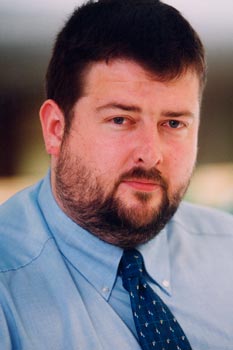There were very few health services in the world which had responded so well to such a sudden sharp sustained reduction in resources over the last three years, while facing into more cuts, Stephen Mulvany, HSE Regional Director of Operations told a HMI Forum in Ardee, organised by the HMI Dublin North East Group.
There were very few health services in the world which had responded so well to such a sudden sharp sustained reduction in resources over the last three years, while facing into more cuts, Stephen Mulvany, HSE Regional Director of Operations told a HMI Forum in Ardee, organised by the HMI Dublin North East Group.

“I think the health services are probably not very good at getting out the message about what we have done. Look at our colleagues in Northern Ireland – they are struggling at the notion of their budgets being reduced by two per cent a year for the next three years. We have faced reductions of 15 – 16 per cent over the last three years and will do so again over the next three years. We have to get better at telling the story of what we are doing – because we are doing an awful lot and we must acknowledge it.”
He said a core feature of the Croke Park Agreement was to provide more integrated patient centred care and a considerable amount of good work had been done in Dublin North East, on foot of the Public Service Agreement.
The main provisions of the Agreement for the health sector, such as re-deployment , multidisciplinary working and reporting relationships, an extended working day and new rosters posed challenges for staff, unions and management, particularly when allied to changes in the HSE structures.
“A lot of good work has been done already in Dublin North East and there is still a considerable amount to do. We must grapple with the idea of benchmarking our own services against external services both in the public and the private sector. We must also recognise that operating within budget is part of patient care.
“Our staff and our unions (and most of us including myself are members of unions) have to be genuinely interested in changes that need to be made. We have to remember that what’s in it for staff and unions are their protected pay and conditions. Croke Park is not a negotiation process, the negotiations are over and the agreement is the price paid for an undertaking not to reduce salaries and conditions further.
“It would be helpful if staff understood that not all the information is always available up front. In terms of managers, some of the key issues are innovation – we need to look at how we can change what we do and how our service locally and regionally can change. “We also need to bring forward well thought out and documented proposals and engage with them. We should seek suggestions from staff and unions.
I think that in some cases we are not adjusting all the services to take account of the fact that we are short of staff and money
“One of our major challenges is sustainability in the delivery of services with diminished resources. We have had budget cuts for the last number of years and the moratorium in place since March 2009 – and indeed we have been losing staff since about 2007. We need to examine the result of this at team and service level. Did we replace staff lost with agency or overtime or did the service diminish or was it curtailed? Something had to happen and I think that in some cases we are not adjusting all the services to take account of the fact that we are short of staff and money.
“If you asked people making out rosters if they had changed their views of how these rosters should be filled, I would surmise that in all cases they haven’t made the adjustment over the last three years. I don’t think we can spend the next three years fighting with costs every day without changing some of the bigger things and planning bigger changes.”

